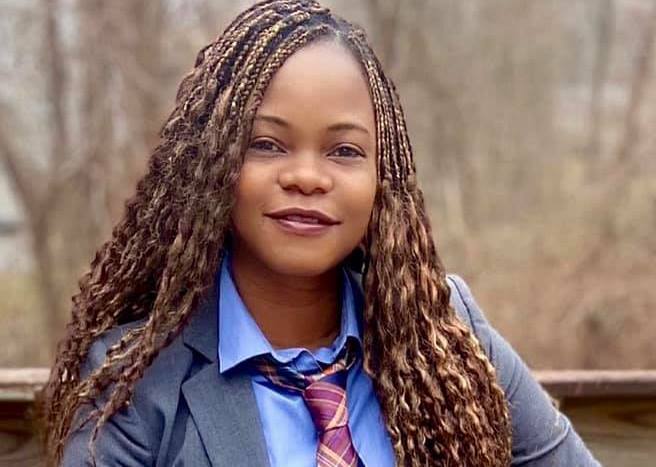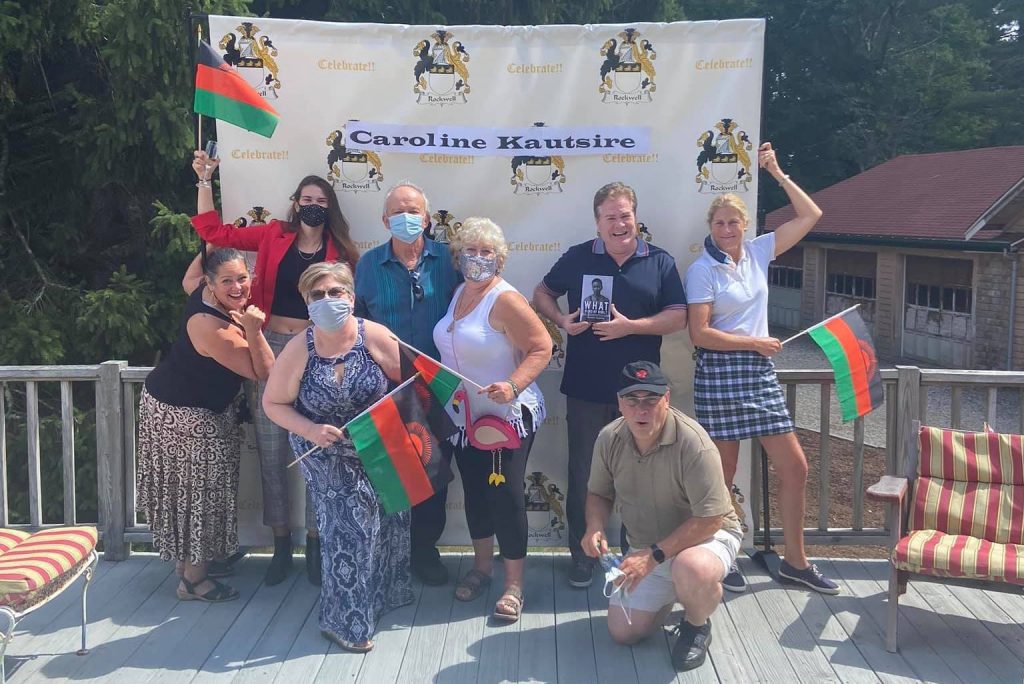Caroline Kautsire: English Professor at Bay State College in Boston
“I am Malawi’s very own—a child of Ben and Lilian Kautsire who live in Sunny Side, Blantyre, which is where I grew up. I am the last born of three children and the only girl in the family. I went to Kamuzu Academy for high school and then moved to America where I became not just a professor, but something of a renaissance woman—trying to apply my many talents and areas of knowledge. I am single,” she responds.
Caroline says she went to the US because her parents wanted her to have the best education and since Boston has many outstanding universities, she decided to give it a try.

As a student, she worked as a writing tutor and her passion for helping others was quickly noted.
This led her to many job opportunities and before she knew it, she became an English professor.
Caroline describes her professional life as eventful.
“I not only teach English literature and composition, but I also teach public speaking and run poetry series for different non-profit and government organisations. As an author, I am invited to many events to give talks that inspire others or I am asked to recite my poetry if it fits the theme of the event,” she adds.
Last year, Weymouth Town chose the professor to deliver a poem at a Black Lives Matter peace vigil after the passing of George Floyd.
Hundreds of people attended and heard the Malawian reflect on the black experience and her reaction to Floyd’s death. The poem was titled I Woke Up Black.

This year, Caroline has worked with The Department of Developmental Services (DDS), a government organisation that provides support for individuals with intellectual and developmental disabilities, including Autism Spectrum Disorder.
The aim is to enhance their opportunities to become fully engaged members of their community.
“I was their keynote speaker for their 6th annual Rev. Dr. Martin Luther King Jr. event. During this event, I recited my poem, Triggered Souls and gave a speech titled, Finding Light for an Unfinished Nation where I reflected on the current events in America.
“In both pieces, I spoke in terms that encouraged young people to become involved in their communities and to create the change they wish to see. In my writings, I seek a space where all may be uplifted and empowered to play a part in building nations known for its striving for excellence,” she says.
In addition to this, she says she developed the curriculum and taught a poetry series for DDS, helping others to appreciate and write their own poetry.
At the success of the poetry series, Caroline says another organisation called Cape Cod CAN decided to run their own poetry project where she was chosen as the instructor to teach others how to write their own poetry and to use their voices to make a difference in the world.
In all this, the author attributes her success to family and friends who she says have supported her work.
“It’s one thing to write a book and give it to the world, but their feedback is important. It is part of what creates one’s success. As for my family, I want to build a Kautsire legacy, something that outlives me and my family has been behind the scenes encouraging me to press on with this dream,” says Caroline.
Is the book your biggest break yet? Absolutely! She responds, adding that publishing it has opened up many opportunities to work with remarkable people and create more content that inspires others to reach for their dreams.
What Kind of Girl? is about how she grew up facing the impossibility of fulfilling both African and Western roles for females.
Says Caroline: “I was an adventurous girl who was always setting out to conquer new worlds on my own. The memoir explores tensions regarding body image and for me, the expected behaviours for girls were often difficult to execute.
“So, I strove to be accepted on my own terms. Whenever I acted like a tomboy or rejected a tradition for girls, I heard the questions, ‘What kind of girl behaves this way? and What kind of girl are you?’ These skeptical questions fed my insecurity about gender, race, class, language and sexuality, and sometimes made it even harder for me to behave the way I was expected to.’” she adds.
The poet notes that through childhood and adolescence, her struggle to both fit in and stand out as a strong and talented Malawian girl led her to taking risks.
When alienated from our traditions, she started to live in an imaginative world of music, drama and American television, which helped her start the journey depicted in the book.
She has donated books to several libraries in her community in the South Shore area and a few to the library at Kamuzu Academy—her way of thanking the school that raised her.
Caroline was nominated as a best supporting actress by the Eastern Massachusetts Association of Community Theatres.
“I moved to America to become a film actress. However, I realised that I liked stage performances more. When I performed as a character named Trinculo in Shakespeare’s The Tempest, I was. Now, as I grow older, I am getting drawn to movie auditions! Who knows, maybe one day I will be cast in Black Panther 3!,” she beams.
And what has been her experience as an African teaching English in the US?
“It is remarkable. I think I add cultural diversity to the educational field. My unique perspective as a Malawian woman is always appreciated in and outside of the classroom. Sometimes, an outsider’s perspective is what America needs to see itself and I am always keen to offer that view, as long as it helps to build this nation and helps my students develop their own voices too,” says the professor.
She observes that people are usually impressed by her journey as a scholar and an artist because “I accomplished a lot at 34 years old.”
Caroline adds that it takes a lot of self-discipline and determination to juggle all these professional roles in life.
It also requires time management and a resilience that supersedes any obstacle keeping you from accomplishing your goals.
“When it came to my dreams, I refused to settle for mediocre or average results. I chose instead to aim for greater things. And with the help of God, I continue to strive for excellence,’ she says.
Her advice to young men and women is that; she wrote her book to start a conservation about women’s lives and it is her hope that other young men and women will write their stories too.
“I hope they will assert themselves in society and let people know what they have to offer. I hope they will use their potential to build something meaningful. Networking is powerful and when you open yourself up to the talents and gifts you were blessed with, all you have to do is share them with the world and who knows who might discover you,” she says.





